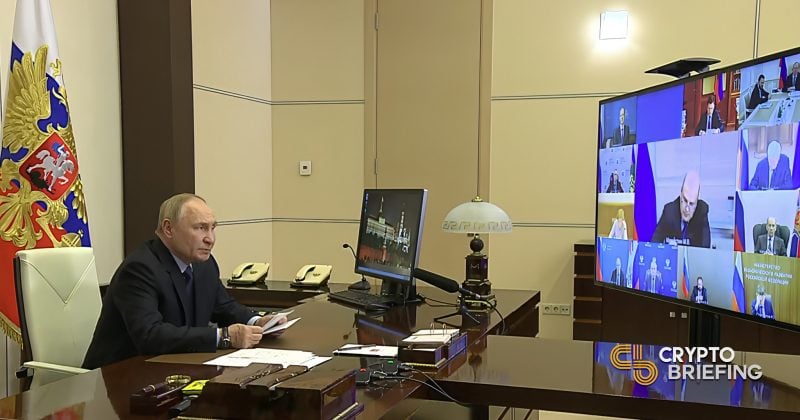Regulation
Russia Moves to Regulate Cryptocurrencies as US Sanctions Pressure Mounts

Putin discusses cryptocurrency legislation. Source: Kremlin
Key points to remember
- The bill on cryptocurrency regulation in Russia is expected to be approved quickly, with the aim of implementation by September 1.
- This legislation marks a significant change from previous resistance to the use of cryptocurrencies in Russia.
Share this article
Russia is moving quickly to regulate cryptocurrencies as its businesses face increasing difficulties with international payments due to U.S. sanctions related to the conflict in Ukraine. According to an initial study, report According to Bloomberg, the State Duma is expected to consider a crypto bill that would treat digital assets the same as foreign currencies.
The lower house of parliament will debate the cryptocurrency legislation in second and third readings on Tuesday, alongside another bill regulating cryptocurrency mining. Lawmakers expect swift approval from the upper house before President Vladimir Putin signs the measures, which could take effect on September 1.
Anatoly Aksakov, head of the Duma’s financial markets committee, said that Russia had already Concerns over the legalization of cryptocurrencies but now considers their use as “an objective phenomenon” that requires regulation.
Crypto Briefing reported earlier in April this year how Aksakov said that “[the] The need for a ban is due to the fact that today [crypto] – is a quasi-currency that replaces the ruble in the country. But only the Russian ruble fulfills the mission of the monetary unit,” the bill encounters both opposition and support.
Growing pressure from US sanctions
The move comes as Russian companies face increasing payment pressure due to threats of secondary U.S. sanctions on foreign banks.
In June, the United States restrictions imposed to stifle support for the Kremlin’s war on Ukraine by exposing its local banks in countries that trade with Russia to a higher risk of “secondary penalties,” which delay and disrupt payments from trading partners like China and Turkey.
Although the use of cryptocurrencies for payments is currently banned in Russia, Putin recently urged authorities to regulate digital assets domestically and for foreign transactions.
Cryptocurrencies are “increasingly used around the world as a means of payment in international settlements,” Putin said in a statement. official statement.
Russia’s central bank has since softened its stance on crypto, supporting its experimental use in cross-border settlements despite earlier calls for a blanket ban.
Crypto as a foreign currency
Under the proposed legislation, cryptocurrencies would be regulated similarly to foreign currencies in Russia. However, analysts expect the restrictions to limit cryptocurrency payment capabilities to large exporters, potentially excluding small and medium-sized businesses. The Bank of Russia would serve as the lead regulator for all matters related to cryptocurrencies and digital assets.
This rapid regulatory evolution highlights Russia’s efforts to circumvent economic sanctions and maintain international payment channels. However, the United States is likely to closely monitor the services and companies Russia uses to try to circumvent the restrictions. These legislative developments reveal the growing role of cryptocurrencies in geopolitical and economic maneuvering between nations.
Share this article


